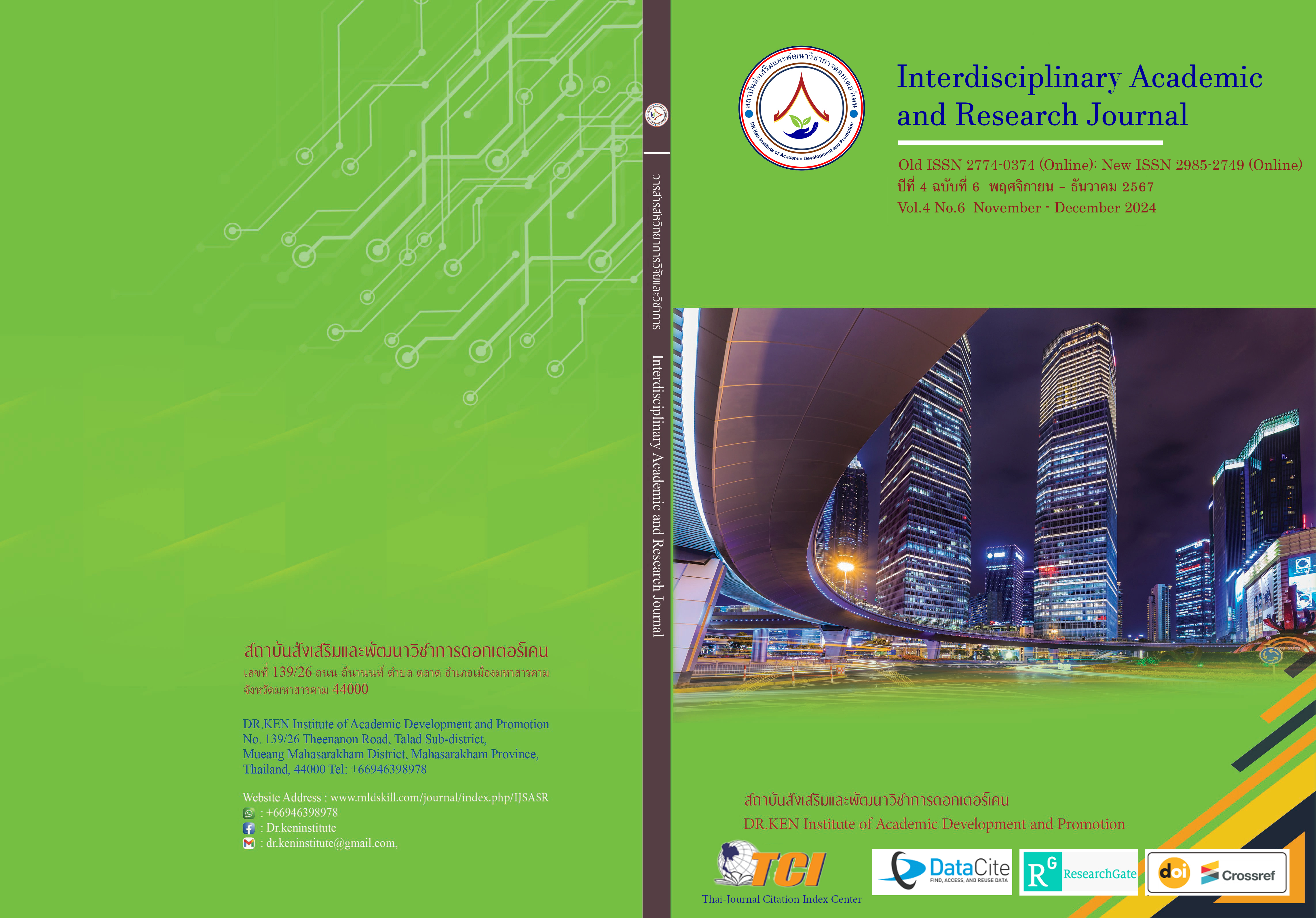Laws Supporting Franchise Business Operations
DOI:
https://doi.org/10.60027/iarj.2024.278303Keywords:
Laws Supporting, Franchise Business OperationAbstract
Background and Aims: Nowadays, franchises are a very popular business model for entrepreneurs who want quick growth and effective management. Franchising is the practice of operating a business in which a written contract between a party known as the "Franchisor" and another party known as the "Franchisee" is entered into use own forms, systems, procedures, and intellectual property rights, or those you have permission to grant others, to conduct business within a designated timeframe or region. Thus, the study of laws supporting franchise business operation aims to (1) investigate the concepts related to franchise business operation, and (2) explore laws related to franchise business operation.
Methodology: This study was documentary research and explored related research, analyzed and presented the results according to the research objectives.
Results: At present, a franchise business is considered a fast-expanding business because the objectives of this kind of business are not only to expand the business and increase income, but also to reduce risks, strengthen the brand, develop skills, and create investment opportunities for people interested to be business owners. Although Thailand issues several laws to control franchise business operations including making a contract, unfair contract terms, intellectual property, consumer protection, trade competition, and laws specific to the business, Thailand does not prescribe specific laws to support franchise business operations.
Conclusion: Thailand does not provide a specific law to support franchise business operations. Therefore, for franchise businesses to operate with accuracy and fairness, as well as to act as an efficient tool in expanding business and creating success in the market, the researcher would like to propose a law specific to franchise business operations.
References
กรมพัฒนาธุรกิจการค้า กระทรวงพาณิชย์. (2561). คู่มือการพัฒนาธุรกิจแฟรนไชส์ตามเกณฑ์มาตรฐานคุณภาพการบริหารจัดการธุรกิจในระบบแฟรนไชส์. นนทบุรี : กรมพัฒธุรกิจการค้า กระทรวงพาณิชย์.
ประกาศคณะกรรมการการแข่งขันทางการค้า เรื่อง แนวทางพิจารณาการปฏิบัติทางการค้าที่ไม่เป็นธรรมในธุรกิจแฟรนไชส์. ข้อ 2. Retrieved from: https://www.tcct.or.th/assets/portals/1/files/2-article_20191209102140.pdf.
ศิริพัฒน์ ศรีจันทร์. (2564). การพิจารณาก่อนเป็นแฟรนไชส์ซี. วารสารวิชาการและวิจัย มหาวิทยาลัยภาคตะวันออกเฉียงเหนือ. 11 (2), 281-293.
Directive 2005/29/EC of the European Parliament and of the Council. (2024). Unfair Commercial Practices. Retrieved from: https://eur-lex.europa.eu/legal-content/EN/TXT/?uri=celex%3A32005L0029
Directive 2011/83/EU of the European Parliament and of the Council. (2024). Directive 2011/83/EU on Consumer Rights. Retrieved from: https://eur-lex.europa.eu/legal-content/EN/ALL/?uri=celex%3A32011L0083
EU Competition Law. (2024). Article 101-102. Retrieved from: https://competition-policy.ec.europa.eu/system/files/2021-03/merger2015.pdf
Fair Transactions in Franchise Business Act. (2024). Purpose. Retrieved from: https://wipolex-res.wipo.int/edocs/lexdocs/laws/en/kr/kr119en.pdf
Regulation (EU) 2016/679 of the European Parliament and of the Council. (2024). General Data Protection Regulation: GDPR. Retrieved from: https://www.rapdp.org/index.php/en/node/56
Downloads
Published
How to Cite
Issue
Section
License
Copyright (c) 2024 Interdisciplinary Academic and Research Journal

This work is licensed under a Creative Commons Attribution-NonCommercial-NoDerivatives 4.0 International License.
Copyright on any article in the Interdisciplinary Academic and Research Journal is retained by the author(s) under the under the Creative Commons Attribution-NonCommercial-NoDerivatives 4.0 International License. Permission to use text, content, images, etc. of publication. Any user to read, download, copy, distribute, print, search, or link to the full texts of articles, crawl them for indexing, pass them as data to software, or use them for any other lawful purpose. But do not use it for commercial use or with the intent to benefit any business.
















.png)


